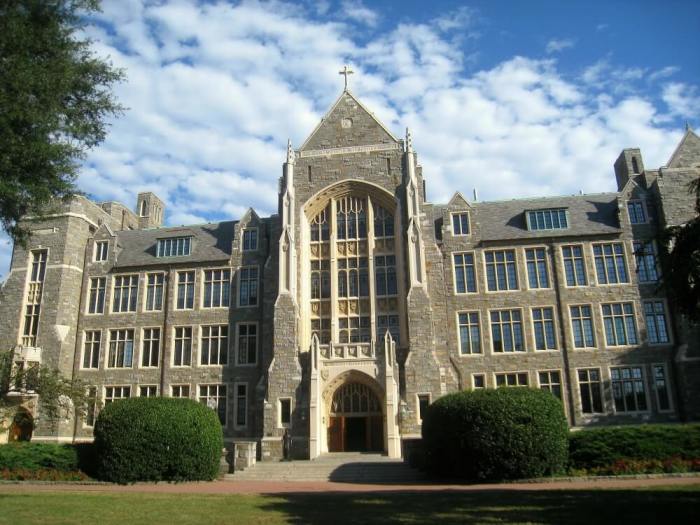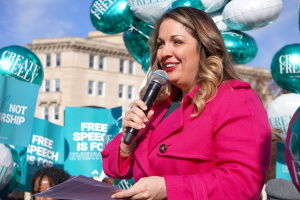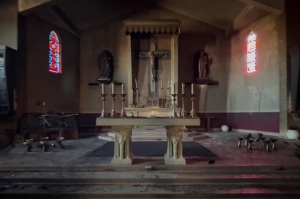Georgetown Univ. to Apologize for Historical Ties to Slavery in Religious Ceremony

Georgetown University will hold a spiritual ceremony in April to publicly apologize for its historical ties to slavery. Maryland Jesuits sold 272 enslaved men, women and children in 1838. Attendees will include descendants of the enslaved people as well as members of the university community and the general public.
Called the Liturgy of Remembrance, Contrition and Hope, the ceremony will be held April 18 in partnership with the Archdiocese of Washington and the Society of Jesus in the United States. Two campus buildings will also be dedicated in honor of the 272 enslaved people.
"The date for the events was selected because it falls two days after D.C. Emancipation Day, which honors the emancipation of slaves in the District on April 16, 1862," the Jesuit university explains in a statement.
"It really is intended to make sure that we remember this part of the university's history," James Benton, a postdoctoral researcher and the slavery, memory and reconciliation fellow for Georgetown, told The Washington Post.
Benton hopes for an annual commemoration. "It's been a pretty interesting process in the last year or so of the descendants and Georgetown getting to know each other," he said. "I would expect this to be another step in that process. We're all coming to terms with the significance of the events of 1838. As we're trying to find a way to move forward, we're all learning a little more about each other."
The two buildings to be dedicated were formerly named after the two Jesuits involved in the sale of slaves to Louisiana plantation owners.
Last month, a Georgetown professor outraged human rights advocates and Muslim students with his defense of slave labor and non-consensual sex during his 90-minute lecture at the International Institute of Islamic Thought in Herndon, Virginia, on Feb. 7.
According to one Muslim student who attended the lecture, Professor Jonathan Brown, who is the director of the Alaweed bin Talal Center for Muslim-Christian Understanding at the school, spent most of his time blasting the practices of slavery in the United States, England and China, while uttering high-minded sounding justifications of some of the most grotesque atrocities occurring throughout the Middle East.
Brown relativized freedom in order to defend the historic use of slaves in Turkey and Arab countries, which he claimed had a fairly decent life when compared to slaves in other regions of the world. "We all think we are free. Almost no human being is free of dependence on others and on society as a whole — almost everyone is forced to work in order to earn wages to buy food," he said.
When speaking on consent as a central aspect of sexual relations, Brown said it was a Western concept which came to be seen as necessary around the time when feminism began to gain ground and women decided they wanted bodily autonomy. "For most of human history, human beings have not thought of consent as the essential feature of morally correct sexual activity. And second, we fetishize the idea of autonomy to the extent that we forget, who is really free? What does autonomy mean?" Brown asked.




























